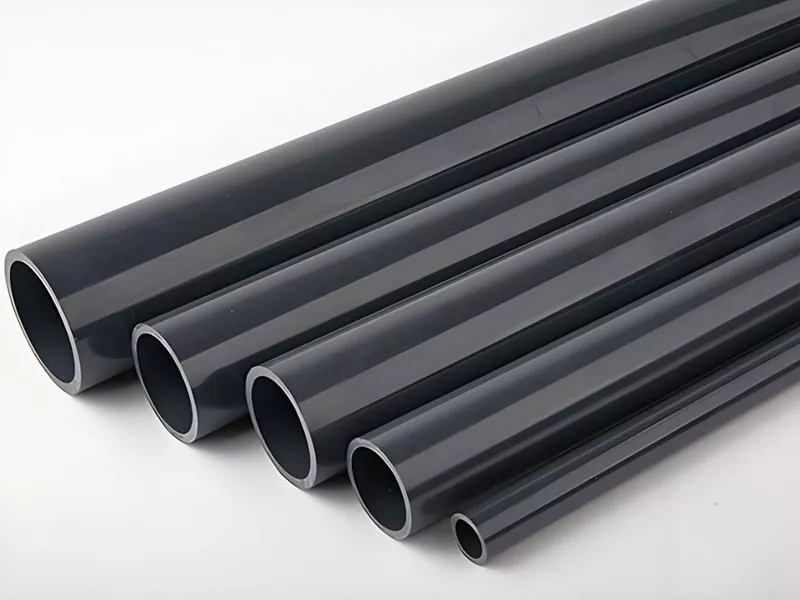
How Long Does PVC Pipe Last? Trusted Plumbing & Heating Explains
If you’re planning to install PVC pipes in your home, replacing old plumbing, or simply curious about the longevity of your current plumbing system, the most common question is, “How long does PVC pipe last?” Understanding the lifespan of PVC piping, the factors that influence its durability, and how to maintain it properly is critical for homeowners who want reliable, efficient, and long-lasting plumbing pipes.
At Trusted Plumbing & Heating, we specialize in expert installation, maintenance, and repair of PVC plumbing systems, ensuring your pipes perform optimally for decades.
What Is PVC Pipe and Why Is It Popular?
PVC, or polyvinyl chloride, is a type of plastic used extensively in residential and commercial plumbing systems because it is durable, lightweight, resistant to corrosion, and cost-effective.
Unlike traditional metal pipes, PVC pipes do not rust, resist scaling, and are easy to work with, which reduces installation time and labor costs. Homeowners often choose PVC plumbing for cold and hot water lines, drainage, venting, and even irrigation systems because it combines durability with affordability, making it a versatile choice for almost any application.
PVC piping is also compatible with a wide range of pipe fittings, valves, and plumbing materials, which means homeowners can rely on it for both new construction and renovations, ensuring a seamless integration with existing systems.
Average Lifespan of PVC Pipes
When properly installed and maintaine
d, PVC pipes can last anywhere from 50 to 100 years. Factors like water quality, water pressure, UV exposure, and correct installation practices all influence the actual lifespan. Unlike metal plumbing pipes, which can corrode and require frequent replacement, PVC piping offers decades of dependable service with minimal maintenance, making it an excellent long-term investment for homeowners.
Factors That Affect How Long PVC Pipes Last
Several factors can affect the pipe lifespan of PVC plumbing, and understanding these can help homeowners maximize durability:
1. Water Quality
Water with high acidity or alkalinity can affect PVC pipes over time. While PVC piping is resistant to corrosion, chemical exposure can still degrade joints and fittings if left untreated. Trusted Plumbing & Heating recommends regular water testing to prevent damage to your plumbing system and ensure the integrity of your pipes.
2. Water Pressure
High water pressure can place stress on PVC pipes and fittings, increasing the risk of cracks or leaks. Our experts measure and regulate water pressure during installation to prevent premature wear and maintain consistent, safe flow throughout your home.
3. Temperature and Hot Water Exposure
PVC plumbing is designed for cold and warm water. But prolonged exposure to very hot water can reduce its lifespan. PVC pipe has specific temperature ratings, and Trusted Plumbing & Heating ensures proper installation using the right materials for hot water lines to prevent damage and extend service life.
4. Correct Installation and Pipe Sche
dule
PVC schedules indicate wall thickness and pressure ratings. Using the proper PVC schedule is critical for system longevity. Incorrect installation or mismatched fittings can reduce the lifespan of PVC pipes. Our professional plumbing experts carefully select the appropriate schedule and install pipe fittings to ensure long-lasting performance.
Advantages of PVC Pipes
There are numerous reasons why homeowners and contractors choose PVC piping for their plumbing systems:
- Corrosion and rust resistance
- Lightweight and easy to install
- Smooth interior reduces friction and maintains water pressure
- Cost-effective compared to metal pipes
- Compatibility with a wide variety of pipe fittings, valves, and plumbing materials
- Minimal maintenance requirements
By choosing PVC plumbing and trusting Trusted Plumbing & Heating for installation and maintenance, you can enjoy these benefits while ensuring your pipes remain reliable for decades.
How to Extend the Lifespan of PVC Pipes
Proper care can maximize PVC longevity:
- Conduct routine inspections for cracks, leaks, or damage
- Avoid exposure to extreme heat or chemicals
- Ensure pipe fittings are installed correctly to prevent leaks
- Maintain water pressure within recommended levels
- Schedule regular professional inspections and maintenance with Trusted Plumbing & Heating
By following these steps, your PVC plumbing can function safely and efficiently for many decades, reducing repair costs and avoiding emergency situations.
Signs Your PVC Pipes May Need Repair or Replacement
Watch for these signs:
- Leaks at joints or pipe fittings
- Cracks or visible damage to pipes
- Reduced water pressure or inconsistent flow
- Discolored or cloudy water
If any of these issues occur, it’s time to contact Trusted Plumbing & Heating. Our professionals provide expert plumbing services to repair or replace PVC piping, ensuring the system operates safely and efficiently.
Professional PVC Plumbing Services by Trusted Plumbing & Heating
At Trusted Plumbing & Heating, we provide comprehensive services for PVC pipes, including:
- Expert installation of new PVC piping systems
- Repair of damaged or leaking plumbing pipes
- Replacement of old or worn-out PVC pipes
- Selection and installation of proper pipe fittings and valves
- Routine maintenance to maximize pipe lifespan
By relying on our licensed professionals, homeowners can avoid costly mistakes, ensure code compliance, and protect the long-term integrity of their plumbing system.
Hot Water Lines and PVC Piping
PVC plumbing is often used for hot water lines, but only certain types, like CPVC, can handle high temperatures safely. Improper installation of PVC pipes for hot water can lead to warping, leaks, or reduced lifespan. Trusted Plumbing & Heating ensures your hot water system is equipped with the right materials and installed according to manufacturer specifications.
Choosing the Right PVC Schedule
The PVC schedule refers to wall thickness and pressure ratings, which directly affect durability. Residential applications use Schedule 40 PVC. Higher-pressure systems may require Schedule 80 PVC. Our experts evaluate your system’s requirements to select the right PVC piping for maximum performance and lifespan.
Maintaining PVC Plumbing Systems
Regular maintenance is key to extending the lifespan of PVC pipes. At Trusted Plumbing & Heating, we recommend:
- Flushing systems periodically to remove sediment
- Inspecting fittings, joints, and valves for wear
- Checking water pressure to avoid stress on pipes
- Replacing worn fittings before leaks occur
Routine care not only prolongs the life of PVC piping but also ensures safe, reliable water delivery throughout your home.
Why Trusted Plumbing & Heating Is Your Best Choice
Homeowners who ask, “How long does PVC pipe last?” need answers from professionals they can trust. Trusted Plumbing & Heating provides:
- Licensed, experienced plumbing experts
- Proper installation of PVC plumbing systems
- Timely repairs and maintenance to prevent damage
- Guidance on pipe schedule, fittings, and pressure management
With our professional care, your PVC pipes will not only last decades but also deliver safe, clean water efficiently and reliably.
Final Thoughts: How Long Does PVC Pipe Last?
PVC pipes are among the most durable and reliable options for modern plumbing systems, offering resistance to rust, corrosion, and scaling. With correct installation, proper pipe fittings, routine maintenance, and professional guidance from Trusted Plumbing & Heating, your PVC plumbing can last 50 to 100 years, providing safe, efficient, and worry-free water delivery throughout your home.
Don’t wait until your pipes show signs of damage or leaks
Contact Trusted Plumbing & Heating today for expert PVC pipe installation, maintenance, and repair services, and ensure your home’s plumbing system performs reliably for decades.


